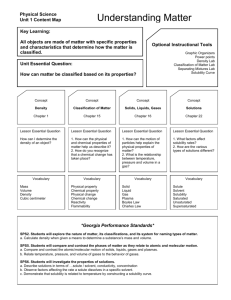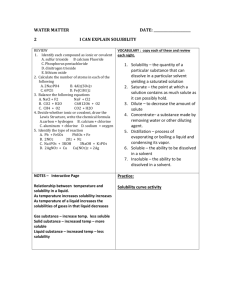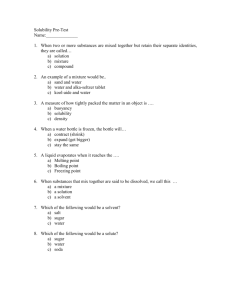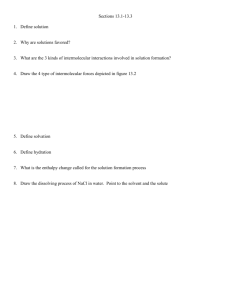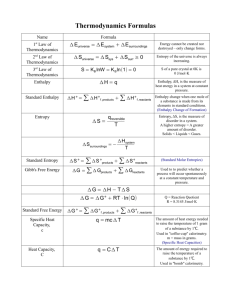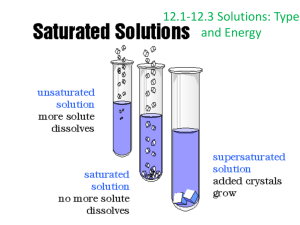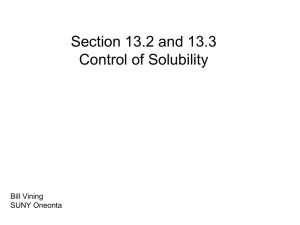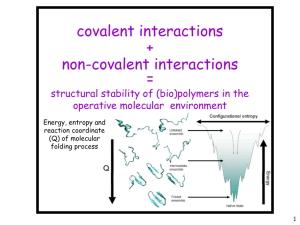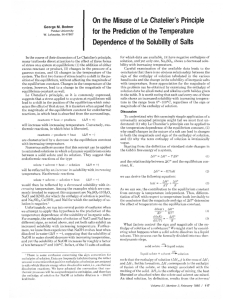Solutions and Their Behavior A Closer Look at Dissolution:
advertisement
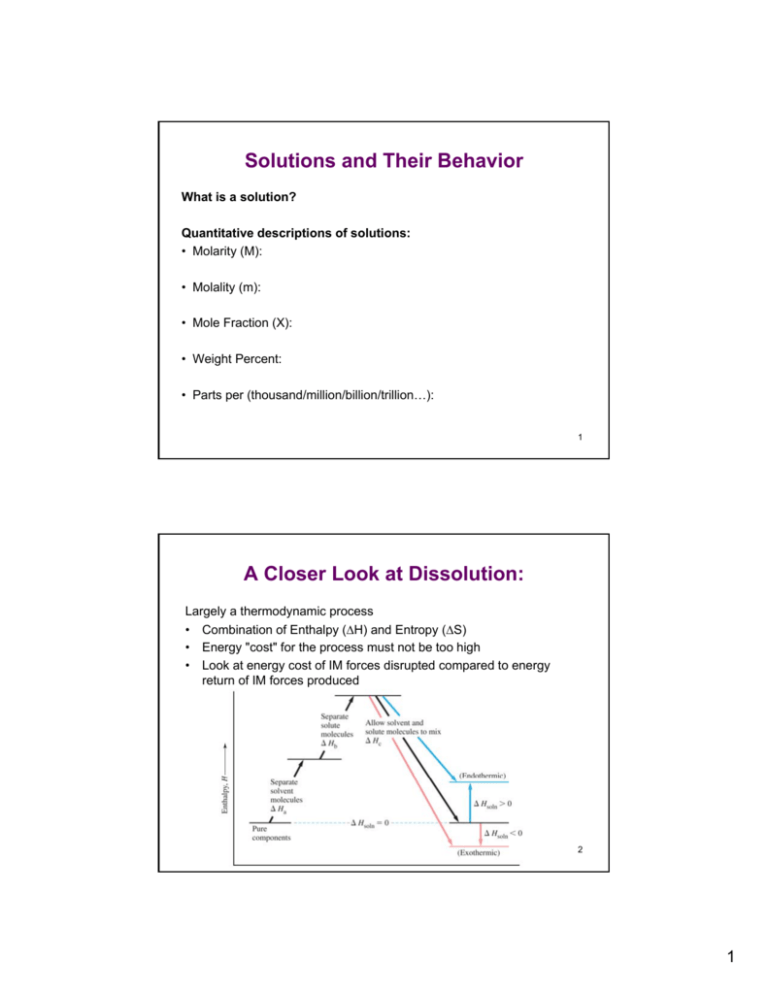
Solutions and Their Behavior What is a solution? Quantitative descriptions of solutions: • Molarity (M): • Molality (m): • Mole Fraction (X): • Weight Percent: • Parts per (thousand/million/billion/trillion…): 1 A Closer Look at Dissolution: Largely a thermodynamic process • Combination of Enthalpy (∆H) and Entropy (∆S) • Energy "cost" for the process must not be too high • Look at energy cost of IM forces disrupted compared to energy return of IM forces produced 2 1 A Closer Look at Dissolution: "like dissolves like“…usually Example: Ethylene Glycol and Hexane in Water Strongest IM force in pure compound Strongest IM force in solution w/ water OH OH H 2C CH2 CH3 CH2CH2CH2CH2CH3 H2O Remember, the tendency for any process indicated by its Free Energy (Gibbs Energy, ∆G), which has enthalpy (∆H) and entropy (∆S) components! (∆G = ∆H – T∆S) 3 Manipulating the Solution Process Often equilibrium based. Solubility and Temperature: • Because of enthalpy and entropy components, we can use head to drive dissolution – Impact depends on size of ∆H and ∆S parts. • Consider heat as a reactant or product in the solubility process. What happens when we add (or remove) heat? – Le Chatelier's Principle: 4 2 Manipulating the Solution Process Gas solubility and pressure: ↑ Pressure → ↑ Solubility – WHY? • Henry's Law: Sg = kHPg 5 Consequences of Forming Solutions Colligative Properties: depend on # solute particles relative to # of solvent particles 1. Vapor Pressure Decrease – Described by Raoult's Law: Psolvent = XsolventPosolvent – WHY? 2. Boiling Point Increase ∆tbp = Kbp msolute – Kbp values are tabulated by solvent – WHY? 3. Freezing Point Depression ∆tfp = Kfp msolute – Kfp values are tabulated by solvent – WHY? 6 3 Odds and Ends 1. Osmosis and Osmotic Pressure – Attempt to reach a uniform concentration on both sides of semipermeable membrane. – Results in change in pressure: Π = M x RT 7 Odds and Ends 2. Electrolytes: need to account for dissociation – Van’t Hoff Factor (i) 3. Colloids and Surfactants: "Solutions" of small particles 8 4
